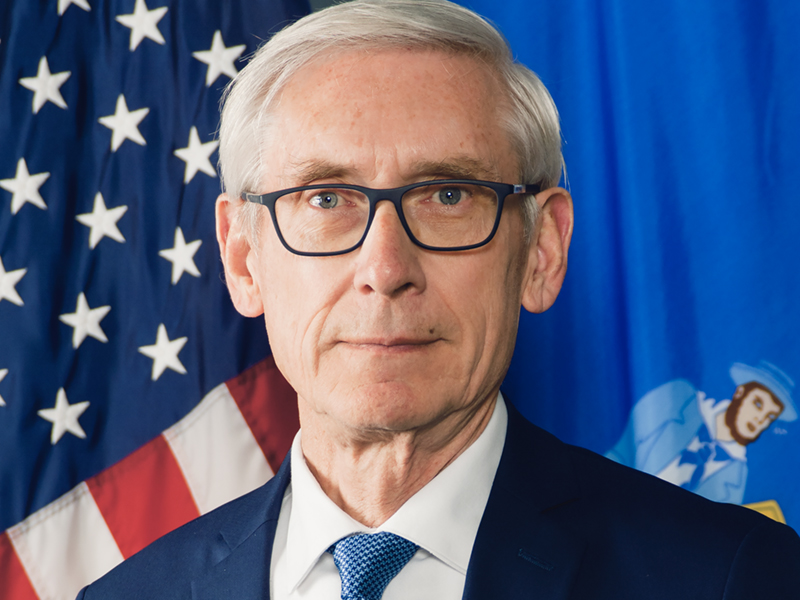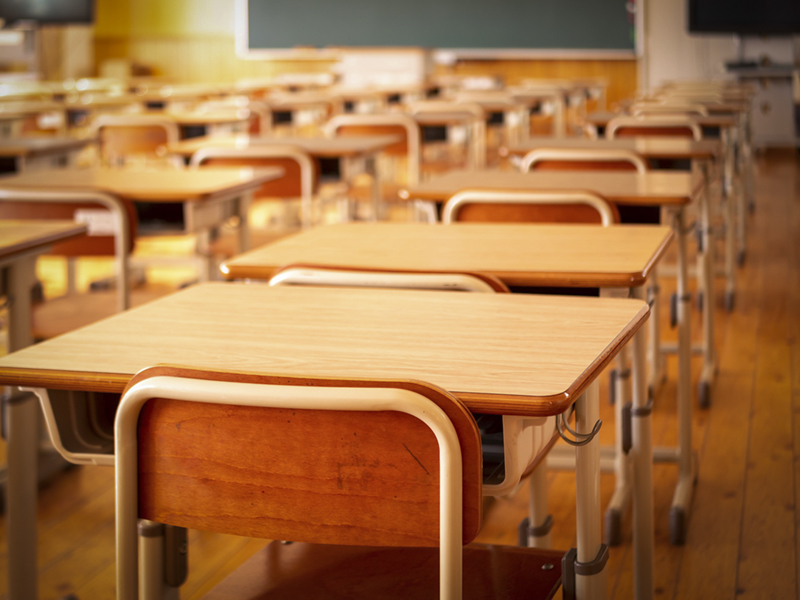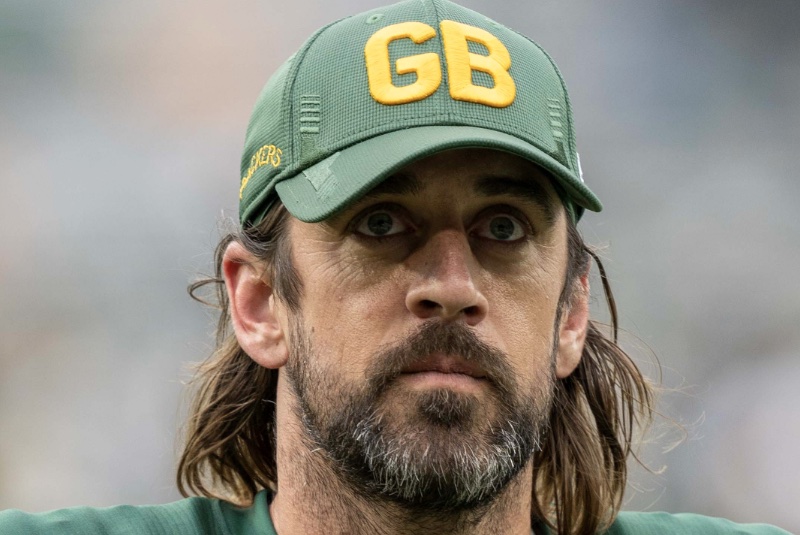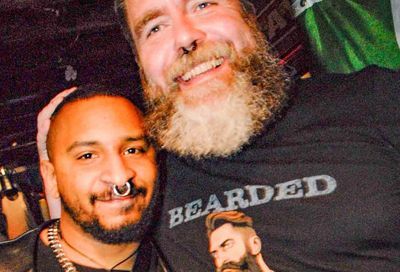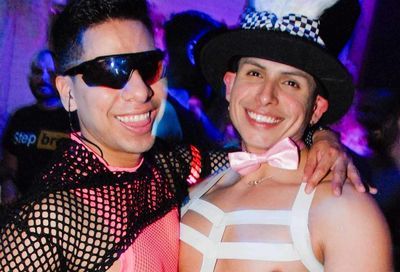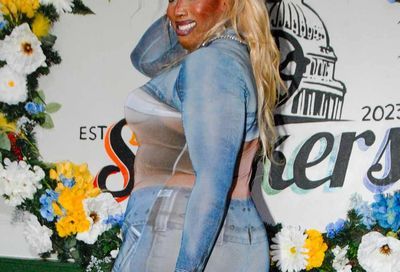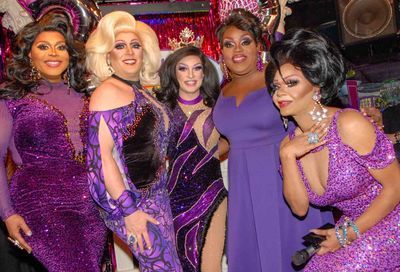Field Goals
Wade Davis talks about life on the gridiron, after the NFL and out of the closet
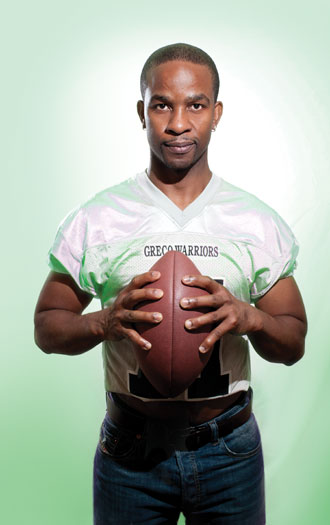
Wade Davis
(Photo by Todd Franson)
MW: Whenever we talk about why gay men have not come out in professional sports, we end up talking about locker rooms. What is it about the locker room that keeps people in the closet?
DAVIS: I think it’s a couple of things that intersect. For me, in the football locker room I never was worried about being attracted to any of my teammates, because that was a place that was sacred to me. That was a place where I was with my family, like with my brothers. But one of the biggest issues is that straight guys are just worried that another man is going to objectify them. Straight guys are used to never being objectified unless they ask for it, unless they take off their shirt around women. But the idea of having another man, who may be more physically imposing than you, be attracted to you, is a space where men can be objectified in a way that makes them feel weak, so it challenges their ideas of masculinity. I think that’s part of it.
For gay men, it’s the worry that their teammates will assume that because I’m gay I’m automatically attracted to you, which is so far from the truth. I’ve spoken to many of my other gay friends, and when you’re in the locker room the last thing you’re thinking about is your teammates in a sexual way. I mean, it never crossed my mind. No. Because that’s the space where you’re actually happy, you’re feeling safe and you don’t want to make anyone else feel unsafe.
MW: During your course of time in the NFL, did you ever come out to anybody?
DAVIS: No-ho-ho-ho. [Laughs.] No, there was never a question in my mind. Never a thought. There was not one football player that I would have considered telling.
MW: Was there ever anything specific that happened that made you think, this is why I’m in the closet, this is why I’m not coming out.
DAVIS: Not in the NFL. Definitely in high school and definitely in my family. And definitely in college. I went to college in Utah, it’s a very religious place. There was a guy in my English class, I won’t say he was obviously gay, but people perceived him as gay. And I remember I was walking through the yard with him and my friend’s like, ”What are you doing walking with that guy, he’s a faggot.” When someone tells you that, and you’re a quote-unquote football star, you automatically run even further away from who you are.
MW: You said that you’re a natural-born shit-talker. Did you ever find yourself talking shit about gays and lesbians to cover yourself?
DAVIS: One of the things I’m least proud of is that I was a bully in high school. I wanted to make my friends think that I couldn’t be gay if I made fun of other gay people. We used to do this thing at lunchtime, we called it ”holding court.” We would sit on top of the tables right at the door and as soon as someone walked in we would start making fun of them for whatever reason. And that was part of my posturing, that was part of me proving my masculinity, proving I was the big dog.
MW: You’ve spent a good part of your career in a sport where African-American men are expected and respected. In general, an African-American male face is kind of the face of a lot of pro sports. Now you’re a black man in the gay community, and that community is perceived as a very white face. How is it a different experience for you, as a black man?
DAVIS: It’s saddening that the norm is for you to be black and an athlete. It’s not the norm for you to be black and anything else; maybe you’re black and a rapper, black and a musician.
I’m lucky that, because of being an ex-athlete, I’m privileged to be able to exist in the gay white world. I’m accepted. People want to be my friend, people want to date me. I’ve been told more times than I can count that, ”Normally I don’t date black men but I would date you.” And people actually think that that’s an okay comment, that I’m going to just say, ”Oh, thanks!”
But I have a lot of black gay friends who don’t feel like they fit into the gay community. And I understand my privilege there, so I try as much as I can to have thoughtful conversations about it. Oftentimes, if you are white and gay, you don’t understand that you have a built-in community, that the black gay community is very disjointed because of the amount of shame and stigma that black men face. I definitely feel an obligation to stay connected to the gay black community, but I also want to build a bridge between both communities, so that black gay men feel that they can interact with the white gay community and vice versa. You know, like the old saying goes, all your black friends have lots of white friends, and all your white friends have one black friend. And it’s kind of true. [Laughs.] It’s so sad.
MW: Much of the LGBT community likes to think of itself as more progressive on race issues than the rest of the country. Do you think the LGBT community actually is a little bit better on race, or is that something we just tell ourselves to feel better?
DAVIS: People won’t like this, but I think it’s something we tell ourselves to make ourselves look better. Gay people have been oppressed for a while — we’re hated and we’re fighting against it. But as soon as we have a little bit of power we oppress someone else in our own community because we’re just not conscious of the fact that we’re doing it. It’s like someone saying, ”I’m not racist, I’m colorblind.” When you don’t see color, you can’t see racism.
My biggest problem with America right now is that we’ve lost our idea of humanity. I feel that we don’t take care of our brother or our sister. That’s our biggest problem. It’s not that we’re racist or sexist or whatever, it’s that we just don’t care about each other like we should. I was walking down the street in Chelsea yesterday, coming from football practice, and I see this guy — white guy, bald head, clearly gay — getting out of a taxi. The taxi driver did something and this guy calls him the n-word. And there was a black man walking on the street right there who stops, and the guy looks at him and says, ”I’m not talking about you.”
And I’m floored. How do we get to the point where we understand that our words hurt? You weren’t talking to me, but you really were. You can’t be racist to certain black people and not to all of us. Like, ”Oh, he’s the nigger, not you.” That’s not possible. So when I see things like that, I feel like we just don’t have humanity anymore, we just don’t care about each other as much as we should.
Support Metro Weekly’s Journalism
These are challenging times for news organizations. And yet it’s crucial we stay active and provide vital resources and information to both our local readers and the world. So won’t you please take a moment and consider supporting Metro Weekly with a membership? For as little as $5 a month, you can help ensure Metro Weekly magazine and MetroWeekly.com remain free, viable resources as we provide the best, most diverse, culturally-resonant LGBTQ coverage in both the D.C. region and around the world. Memberships come with exclusive perks and discounts, your own personal digital delivery of each week’s magazine (and an archive), access to our Member's Lounge when it launches this fall, and exclusive members-only items like Metro Weekly Membership Mugs and Tote Bags! Check out all our membership levels here and please join us today!




